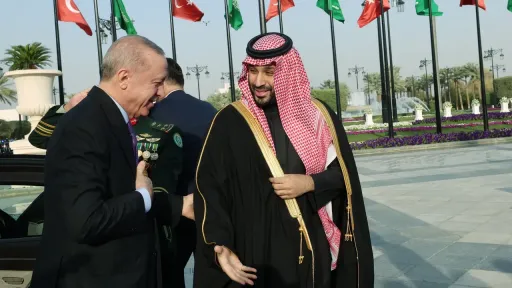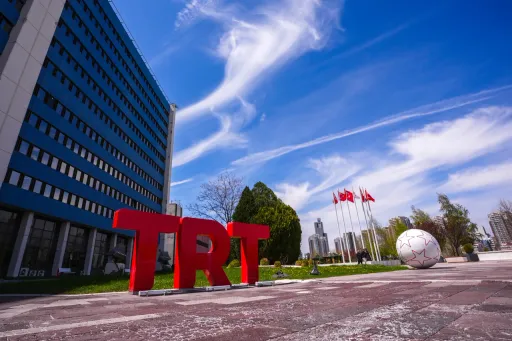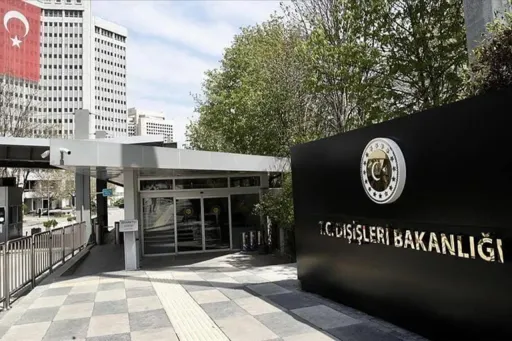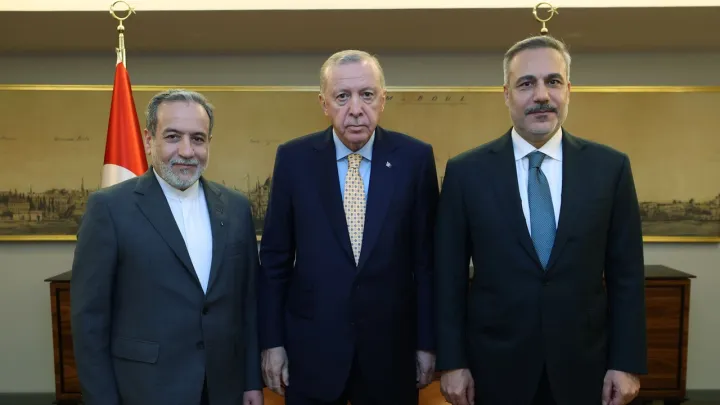Sport
Dollar
0,0000
%Euro
0,0000
%Gram Gold
0,0000
%Quarter Gold
0,0000
%Silver
0,0000
%Türkiye and Kazakhstan signed 20 strategic agreements, from AI to oil transit, that analysts say marks the institutional birth of the “Century of the Turkic World.”
Türkiye and Kazakhstan have signed 20 cooperation agreements, signalling what both governments described as a foundational moment for 21st-century Eurasian integration.
Co-chaired by President Recep Tayyip Erdogan and President Kassym-Jomart Tokayev, the summit held in Ankara on July 29 concluded with a joint statement and a sweeping set of accords across energy, infrastructure, finance, education, and defence.
Key deals include energy partnerships between national oil companies, a freight transport accord along the Middle Corridor, and memoranda on AI, space, mining, and health.
The two countries also agreed on regulatory coordination in finance, joint work on special economic zones, media collaboration, and a roadmap for harmonising education and science.
A technical agreement on UN peacekeeping and multiple sectoral MoUs underscore what both sides call a deepening strategic partnership for regional integration.
As President Tokayev put it: “This is not simply a bilateral agreement, it is a long-term vision for Eurasia’s political economy.”
“These agreements,” said President Erdogan, “reflect a mutual will to institutionalise the spirit of brotherhood between our nations, and to convert shared aspirations into actionable policy.”
Bilateral economic ties between two nations are surging, with 2024 trade hitting $5 billion, Kazakh investment in Türkiye reaching $1.5 billion, and Turkish investment in Kazakhstan nearing $5 billion.
The new agreements, formalised during the Fifth Meeting of the Türkiye–Kazakhstan High-Level Strategic Cooperation Council, and form the bedrock of what Ankara describes as the “Century of Türkiye”, and what many experts now see expanding into a broader “Century of the Turkic World.”
‘Geopolitics meeting civil policy’
According to Basak Kuzakci, an assistant professor of Humanities at the Marmara University, the scope of the agreements marks a profound shift in the architecture of regional cooperation.
“We’re no longer talking about just trade deals. These are institutional tools for building a regional order,” she tells TRT World. “The Turkic World is no longer an abstract idea, it is becoming a system of governance, investment, and synchronised development.”
Kuzakci highlights the fusion of hard infrastructure that is railways, ports, pipelines with soft infrastructure, such as regulatory harmonisation, educational cooperation, and coordinated media frameworks.
“This is geopolitics meeting civil policy. And it’s happening through memoranda that build trust, interoperability, and long-term capacity.”
Economist and assistant professor Murat Yas, also of Marmara University, emphasises the geopolitical and commercial stakes behind the Ankara agreements.
He sees them as laying the groundwork for a more self-directed regional economy, less tied to Russia.
“With these 20 agreements, Ankara and Astana are establishing the core of a regional trade architecture built to function independently of Russia” Yas tells TRT World. “The Middle Corridor isn’t just a transport route, it’s a political economy in motion.”
Yas points to growing Kazakh oil flows via the Baku–Tbilisi–Ceyhan pipeline and Türkiye’s investments in Caspian logistics as signals of an emerging energy realignment.
“It’s about reducing bottlenecks and inserting Turkish capital and expertise into the skeleton of Central Asia’s infrastructure,” he says.
He also praised Tokayev’s proposed joint mining fund and export diversification strategy as evidence of “a mature approach to sustainable industrial integration.”
“If these projects hold, we’ll move from extractive trade to co-production. From raw copper to smart processing. From wheat to biotech partnerships.”
‘Turkic world: An emerging system’
While many of the signed agreements will take years to come to fruition, experts agree the strategic intent is unmistakable. Türkiye and Kazakhstan are crafting a multi-nodal Eurasian order, with shared institutions, co-owned infrastructure, and harmonised standards.
“If these agreements are implemented with real political will, they will define Eurasia’s trade, energy, and diplomacy for the next generation,” says Kuzakci. “The Turkic World is now an emerging system. And Türkiye and Kazakhstan are the architects.”
Murat Yas adds: “If delivered, this partnership could anchor the western flank of a China–Central Asia–Türkiye trade spine, bypassing maritime choke points and traditional dependencies.”
The Ankara summit wasn’t just a diplomatic event; it was a roadmap. Now it’s up to both nations to pave the road and walk it together, he says.
20 agreements
Erdogan and Tokayev signed the joint declaration and strategic roadmap of the Türkiye–Kazakhstan High-Level Strategic Cooperation Council.
Turkish Petroleum Corporation (TPAO) and KazMunayGaz signed a bilateral energy cooperation deal.
Rail and logistics leaders from Türkiye and Kazakhstan agreed to expand freight traffic along the Middle Corridor.
Anadolu Agency and Kazakhstan’s Television and Radio Complex (TRC) signed a media cooperation agreement.
Türkiye’s BDDK and Kazakhstan’s financial regulator agreed to strengthen banking oversight ties.
Presidential communication offices from both countries formalised cooperation in media and information policy.
Transport ministers signed an MoU on international road transport between Türkiye and Kazakhstan.
Trade and industry ministries signed a declaration on special economic zones cooperation.
Commerce ministries sealed an MoU to deepen trade and economic relations.
Technology ministries signed a pact on cooperation in AI, innovation, and space.
An implementation protocol was signed on joint science and technology initiatives.
Health regulators from both countries agreed on pharmaceutical oversight and cooperation.
Research institutions, Turkish Health Institutes and Kazakhstan’s National Research Centre, signed an MoU to develop joint health system strategies.
Education ministries signed a deal enabling the Maarif Foundation to expand operations in Kazakhstan.
Energy ministries signed an MoU to strengthen bilateral cooperation in the energy sector.
Türkiye and Kazakhstan committed to joint projects in mining and mineral development.
Urban planning ministries agreed to collaborate on city development and infrastructure policy.
Justice ministries signed an MoU to deepen legal and judicial cooperation.
Defence officials signed a technical agreement on cooperation in UN peacekeeping missions (UNIFIL).
With 20 signatures, two leaders, and one shared vision, Türkiye and Kazakhstan have taken a bold step into a new geopolitical era, where the future of the Turkic world will rest on signed agreements, rail corridors, and digital frameworks built to last.
Comments
No comments Yet




















Comment